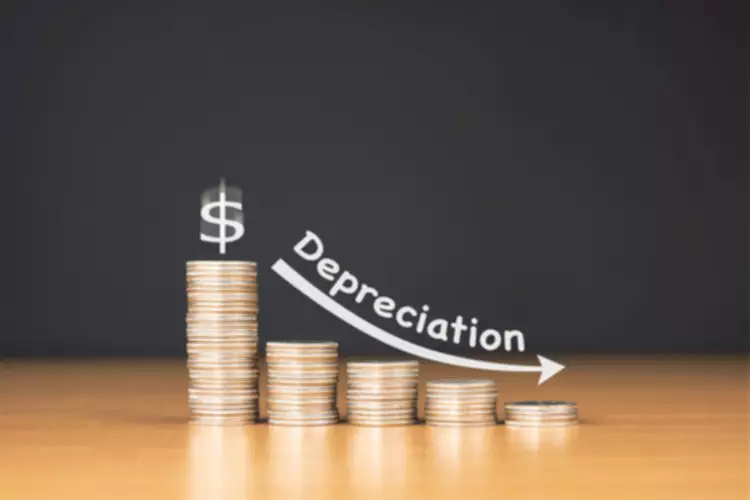Content
At its simplest, a budget lists fixed and variable expenses and determines how to allocate the money coming into the business. As opposed to the forecast, which estimates what business will achieve. Budget implies a formal quantitative statement of income and expenditure for a certain period. It is a plan for the resources allocated for the completion of the activities, that requires to be followed, to achieve the desired end. It is not exactly same as forecast, which is a simple estimation of the future course of event or trend. It is a forward looking activition, which encompasses projection.
Delivering products without overspend – TechHQ
Delivering products without overspend.
Posted: Fri, 25 Nov 2022 19:09:58 GMT [source]
This shall result in higher interest costs for the company, and hence the company needs to reinstate its budget according to the new projected interest cost. Profit CentersProfit Center is the segment or division of a business responsible for generating revenue & contributing towards its overall profit. Here, the objective is to increase sales & reducing the cost incurred. The GoCardless content team comprises a group of subject-matter experts in multiple fields from across GoCardless.
Start Implementing Budgeting and Forecasting to Stay On Top of Your Startup
Either their budget was way off, or something significantly impacted the amount of new revenue they’re bringing in. Forecasting, on the other hand, is a projection of numbers your startup will hit based on your current performance. It shows you where your business is headed as it currently stands. A business always needs a forecast to reveal its current direction, while a budget is not always necessary. Setting target KPIs and profitability goals will help avoid unnecessary loops—especially for a bottom-up budget.

Without an opportunity to update the budget in the form of a forecast, people will be held accountable for outdated assumptions. In addition, variance analysis will continually have the “noise” of obsolete comparisons. But building and constantly updating a rolling forecast comes with its challenges if the organization lacks the proper automation and discipline to facilitate it.
Products
A management team can use financial forecasting and take immediate action based on the forecasted data. After creating your business’ financial forecast, your work is not done yet. The most critical part comes in after preparing the estimates. You need to record your company’s performance and compare it to your projections after each month or year. Evaluating actual against projected figures can help you make a better financial forecast in the succeeding year. Take note of what you did wrong if your estimates come out to be way off from the actual figures. The purpose of making a budget is to know whether your business will have enough money to get things done.

In the case of the budget forecast, historical data is not referenced directly because the budgeted values are being forecasted. The budget is compared budget versus forecast to actual results to determine variances from expected performance. Jirav is a great all-in-one solution for your budgeting and forecasting needs.
What is Budget Forecasting?
She has nearly two decades of experience in the financial industry and as a financial instructor for industry professionals and individuals.
Continuous planning and rolling forecasts are becoming widely used methodologies to update plans, budgets and forecasts frequently throughout the year, on a quarterly or even monthly basis. These approaches help managers spot trends before their competitors — helping them make better informed, more agile decisions about pricing, product mix, capital allocations and even staffing levels. But there are important differences in financial forecasts vs. budgets. A forecast can convince a company to make changes in its budget, but not the reverse. Forecasting does not provide information on what actually happened in your financial past. Budgets do, relying on variance analysis of actual vs. expected results.
A forecast uses historical information to produce a prediction of what the business will actually achieve. Usually, forecasts are not very detailed and tend to broadly group revenue and expenses.
Overall, forecasting is a more useful tool to use for your business, as it provides you with a more insightful understanding of the actual circumstances that your business is facing. Whereas forecasts can be used to spur immediate action, budgets often provide unachievable targets or goals that simply bear no relation to current market conditions. However, it’s also important not to discount the potential benefits of a budget. Ultimately, budgeting and forecasting go hand in hand, and can be used in tandem to optimize your company’s long-term strategy.
A budget is typically a static financial plan, meaning they are typically only updated once a year. You can use forecasting for the short-term and for the long-term. While you can have a forecast for the entire year or even several years, companies typically have a revenue forecast for the quarter or six months out. The challenge with long-term forecasts is that so much can change in your business over the course of a year, that 2, 3, 4+ year forecasts tend to become less accurate over time. Because it’s updated monthly or quarterly, the forecast can also be used to steer operational activities.
- Financial forecasts undergo several adjustments as the business situation, and economic conditions change.
- When you have to adapt your original budget, the change is reflected in your forecast.
- They do this to predict where the company will end up by the end of that year.
- Involving other staff in the forecasting process in these steps will also help ensure that understanding of the method is shared by key potential supporters.
This is exactly why it pays to regularly check and compare your budget and forecast numbers. The shorter timeframe of a forecast will help your business act fast and make decisions quickly rather than wait an entire year to see whether or not https://www.bookstime.com/ you’re headed back in the right direction. You should regularly reevaluate your budget and make adjustments based on your startup’s current financial position. Budgets are short-term and typically outline your plan for less than a year.